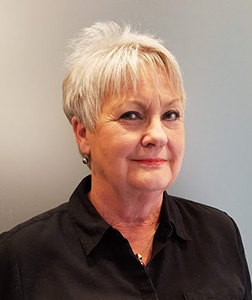The interview below is part of an ongoing effort by McGuireWoods to profile women leaders in private equity (PE). To read previous profiles, click here. To recommend a woman for a future interview, email WPEF@mcguirewoods.com.

Sheila Schweitzer is a co-founder and a managing partner of Blue Ox Healthcare Partners, serving on the firm’s investment committee. She has more than 30 years of experience in the healthcare industry and brings tremendous depth of experience and success as a C-level executive, investor and advisor. At Blue Ox, Schweitzer founded and serves on the board of PatientMatters Holding, a technology and patient engagement firm helping both healthcare providers and patients manage out-of-pocket financial obligations. She previously served as chair and CEO of CareMedic, a healthcare information technology (HCIT) revenue cycle management company; chief operating officer of MedUnite, a consortium of insurance/managed care companies that created a health data exchange; CEO of Presideo, a biometric security platform for HCIT systems; and senior vice president of operations of Envoy (now Change Healthcare), a national healthcare clearinghouse.
Q: What attracted you to PE?
SS: I am a five-time entrepreneur, all healthcare businesses. What attracted me to PE is seeing that healthcare is going through a significant metamorphosis, with value-based pricing and affordability now driving the industry. Supporting both of those drivers requires innovation. That innovation has to come from small- and mid-sized companies, often founded and managed by entrepreneurs. What do those companies really need? Growth capital, which private equity is well-suited to provide. That’s why I decided to commit myself full time to PE and supporting these innovative companies that truly can make an impact in the industry I focus on.
Q: Why do you actively support providing capital to women entrepreneurs?
SS: I find that women entrepreneurs tend to lean toward companies and products that have a social conscience, such as healthcare and education. That’s one of the reasons why I wanted to try to help women. I could give you war stories about what it was like when I was first launching my companies in the early 1980s. It was really unheard-of for a woman to found a company, particularly one that was technology-based.
Q: What do you think is the biggest challenge facing women entrepreneurs?
SS: I believe the challenges I faced then have become somewhat better. However, PE still has that “boys’ club” mentality — still has that thinking that women have a greater challenge with work-life balance. Such stigmas still surround a woman entrepreneur.
Women have great ideas. They just don’t get a seat at the table as often as their male counterparts. I think if a company has a solid product, plan and management team, investors should consider it regardless of whether the company is being led by a woman or a man. That isn’t always the case — women’s challenges are definitely magnified.
Q: What advice would you provide to overcome these challenges?
SS: I think women need to step up. I advise the women I interact with to be confident in themselves; be confident in their plan. You don’t need to take on the persona of your male counterpart. Be who you are. If you’ve worked hard enough to get to a business opportunity that’s worth investing in, take pride in that accomplishment and take ownership of it.
Q: What advice would you provide to a woman-led company interested in securing PE?
SS: I find that women entrepreneurs don’t challenge PE and venture firms strongly enough. They need to understand the personality of that PE firm, what fund will you be in and how much life is left in that fund. You also need to understand their intentions, their way of doing business and how, for example, that may impact your ability to secure a second round of growth capital.
I find that women entrepreneurs do not really have the opportunity to learn how to ensure they are selecting a good partner in a PE firm. I think they also have more hesitancy to ask those key questions. I believe the reason is they haven’t had the same experience and exposure as their male counterparts.
Q: Can you share a personal story that you feel exemplifies the value of women entrepreneurship?
SS: I was working with an older gentleman. I had two of my male employees with me during an initial meeting. After about 20 minutes, this older gentleman said to his partner, “You know, I think the skirt’s in charge.” I thought it was hilarious, but that would never happen to a man. I could easily have taken offense, but I rolled with it and proved I was in charge.
You need to have a sense of humor. I always thought that being female could be an advantage. Oftentimes, men don’t know how to react to you when you know your business as well as they do and have the confidence to be there at the table.
To contact Schweitzer, email sheila@blueoxhcp.com.